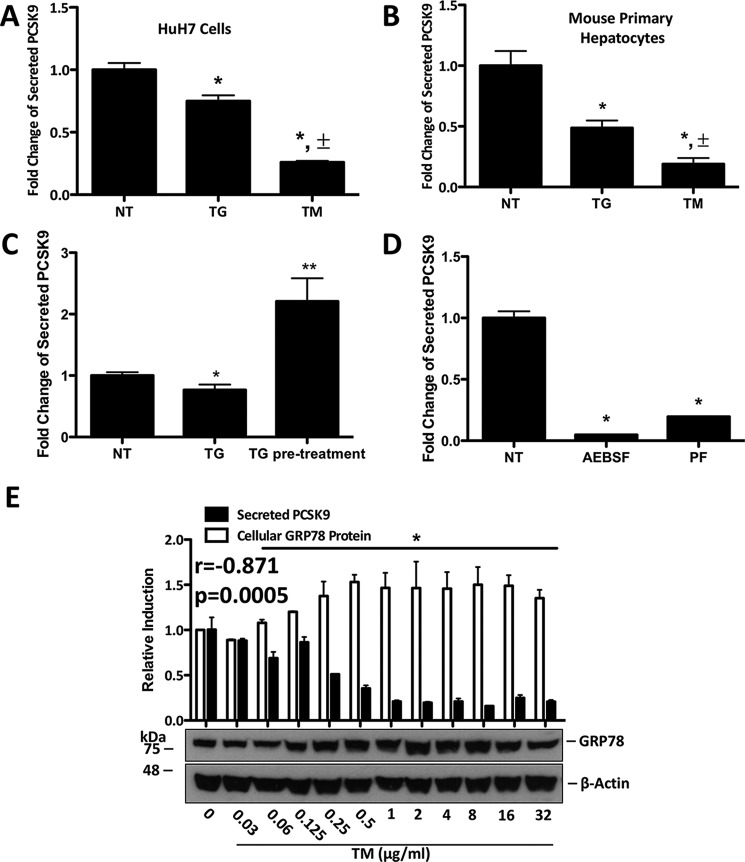FIGURE 3.
ER stress reduces PCSK9 secretion. A and B, HuH7 cells and primary hepatocytes were either untreated (NT) or treated with TG (100 nm) or TM (2 μg/ml) for 24 h. The FBS-free medium, in which these cells were cultured and treated, was collected and examined for secreted PCSK9 via ELISAs. A and B, ±, p < 0.05 versus TG-treated cells. C, secreted PCSK9 was then examined in the media of HuH7 cells, which were pretreated with TG (100 nm) for 4 h and permitted to rest in TG-free medium for 48 h. D, to examine the effect of SREBP2 inhibition on secreted PCSK9, FBS-free medium from HuH7 cells treated with AEBSF (0.3 mm) was also examined via ELISAs. A–D, *, p < 0.05 versus non-treated cells (NT). **, p < 0.05 versus TG-treated cells. E, correlation between UPR activation and PCSK9 secretion was assessed using a dose-response experiment in which HuH7 cells were treated with increasing concentrations of TM for 24 h. GRP78 expression, determined via immunoblots, was quantified and compared with ELISA data generated from the medium of the respective HuH7 cells. A Pearson's correlation was used to establish the relationship between cellular GRP78 expression and secreted PCSK9 (r = −0.871, p = 0.0005). E, p < 0.05 versus NT. Differences between treatments were assessed with paired Student's t tests, and all values are represented as mean ± S.D.

